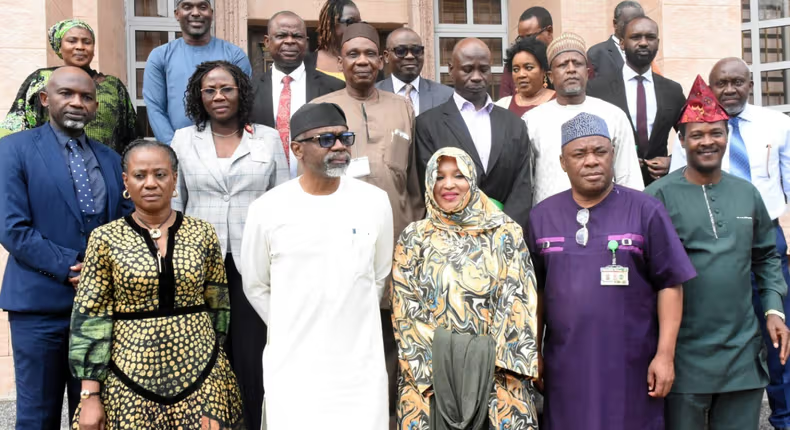The Presidency has committed to taking decisive action to remove Nigeria from the Financial Action Task Force’s (FATF) grey list before the May 2025 deadline. Femi Gbajabiamila, the Chief of Staff to the President, made this pledge during a visit to the Nigerian Financial Intelligence Unit (NFIU) office in Abuja on Tuesday.
Nigeria was placed on the FATF grey list on February 24, 2023, due to rising capital inflows and deficiencies in combating money laundering, terrorism, and arms financing. The FATF is an independent intergovernmental organization that promotes policies to protect the global financial system, evaluating jurisdictions based on its Anti-Money Laundering/Counter Financing of Terrorism and Proliferation (AML/CFT/P) standards.
During the visit, Gbajabiamila assured that the Federal Government would address the shortcomings that led to Nigeria’s inclusion on the list. He emphasized the urgency of completing the remaining tasks in the FATF action plan, noting that nine months remain to meet the deadline. Gbajabiamila warned against complacency, stating, “One rotten egg can spoil the whole basket,” and stressed the importance of avoiding a last-minute “fire brigade approach.”
The Chief of Staff also expressed his commitment to continued collaboration with the NFIU to protect Nigeria’s financial system from threats like terrorism financing, money laundering, and arms proliferation. The NFIU, which operates under the supervision of the State House, has already implemented 30% of the action plan to address the deficiencies identified by FATF.
Hafsat Bakari, the Director and CEO of NFIU, highlighted the agency’s progress in fostering inter-agency cooperation, with over 45 agencies connected to its intelligence-sharing platform. Additionally, 18 state internal revenue services have been linked to boost domestic revenue mobilization at the sub-national level. Bakari also noted that NFIU is implementing a monetary network framework following the Supreme Court’s ruling on local government fiscal autonomy, aimed at ensuring that resources have a tangible impact on citizens.
Bakari emphasized the need for continued capacity building to stay ahead of evolving financial crime methods. Gbajabiamila’s visit to NFIU was part of a broader engagement with agencies under the State House’s supervision, including the Nigeria Extractive Industries Transparency Initiative (NEITI) and the National Council on Climate Change (NATCCC).



